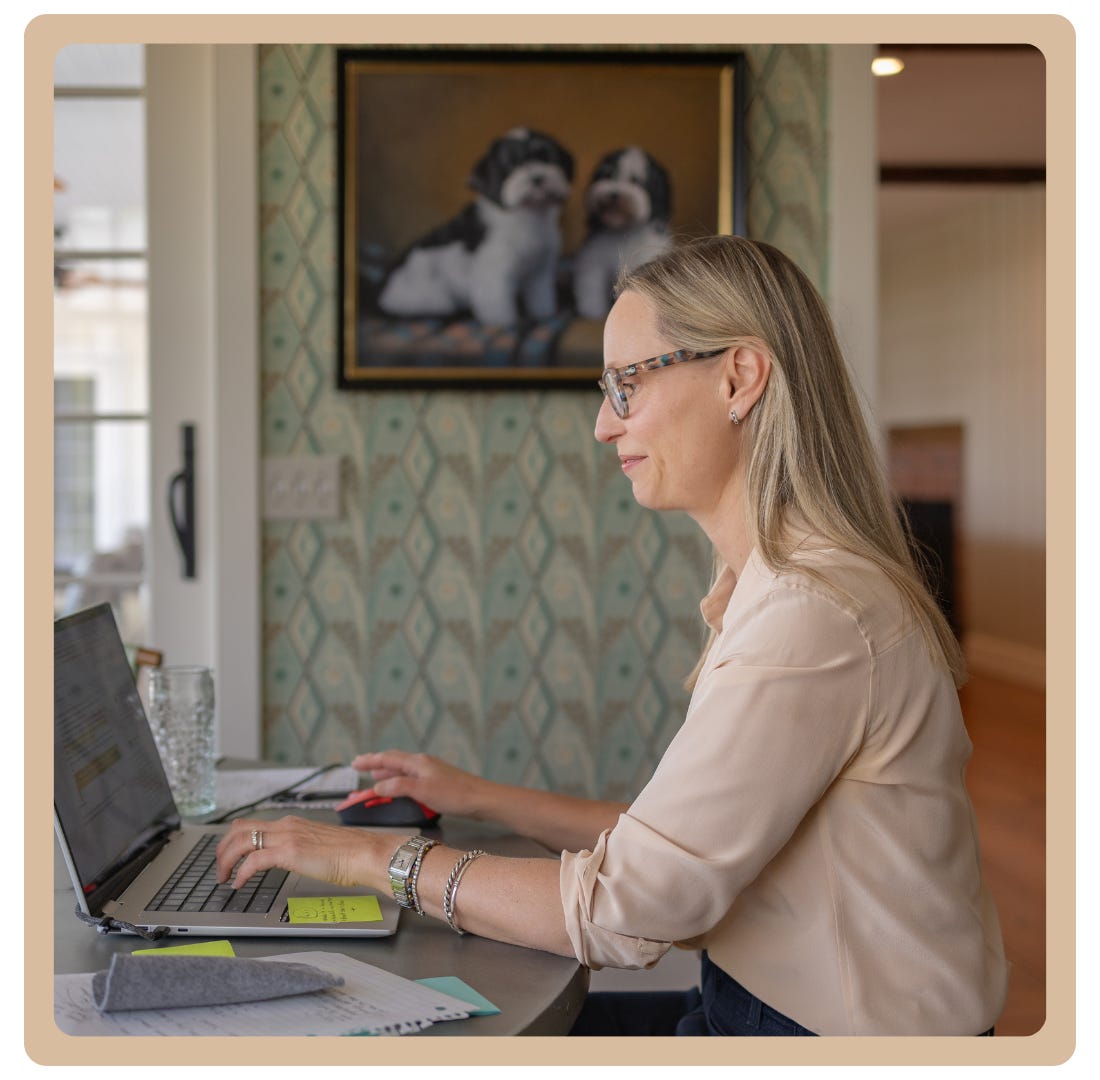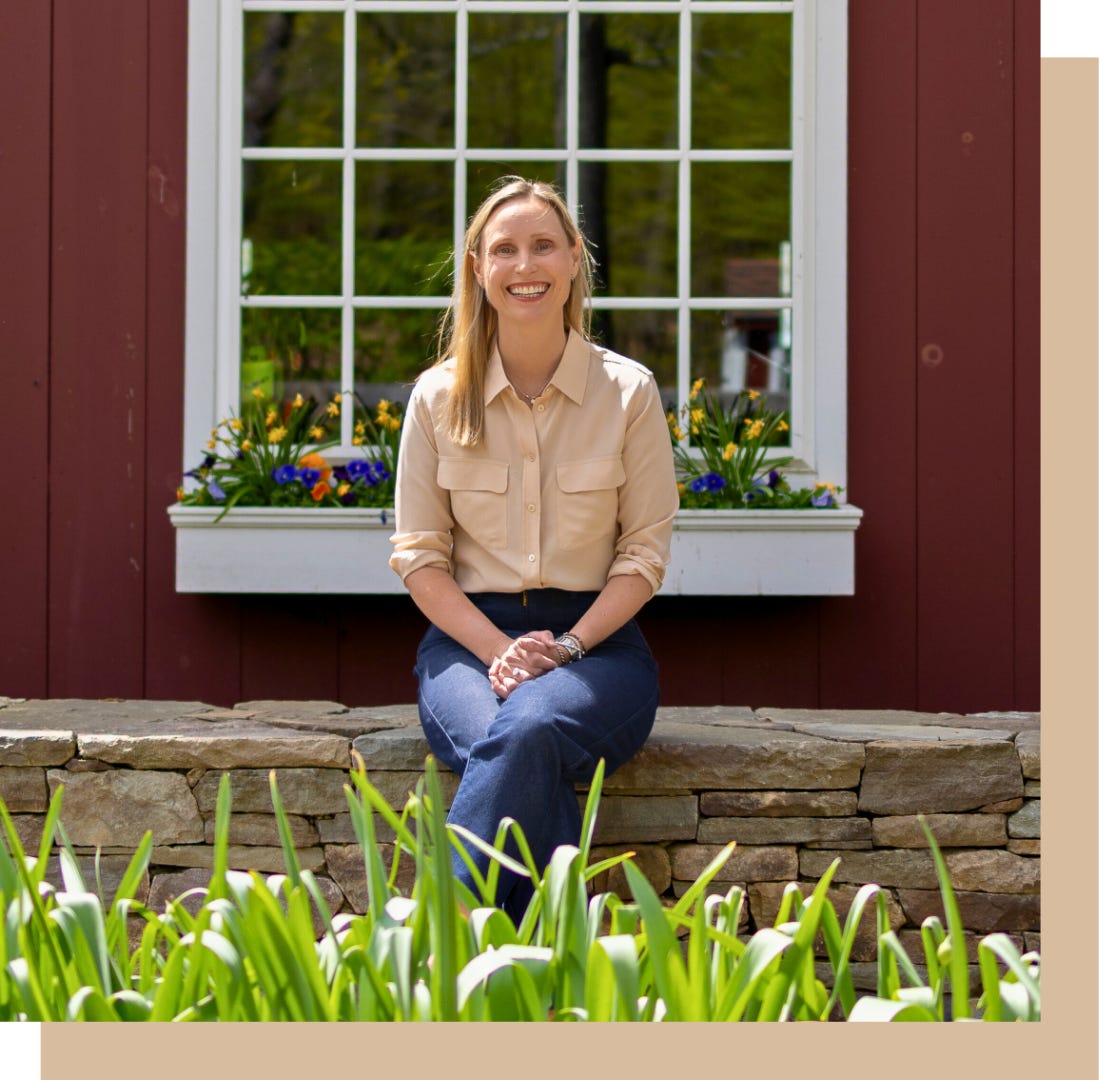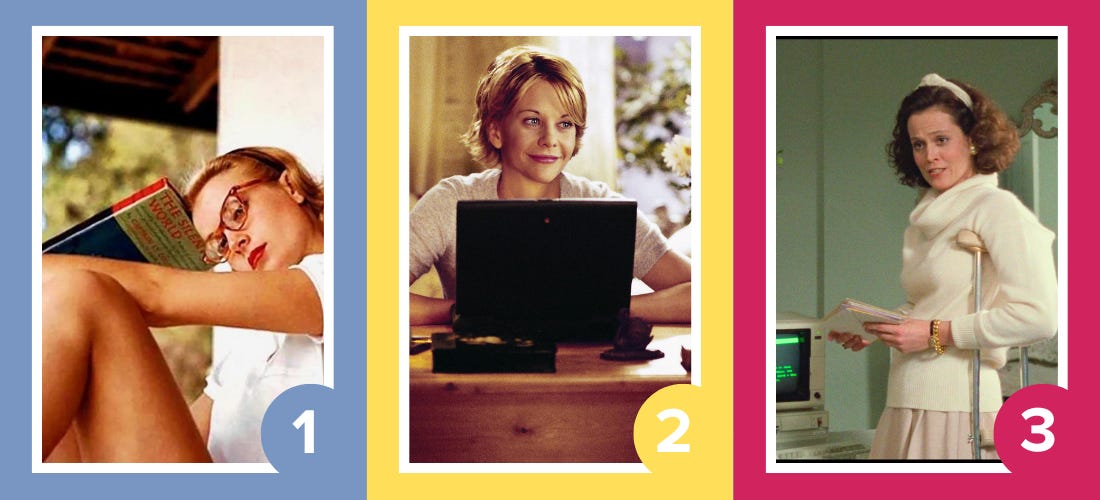The 7 Most Important (And Counter-Intuitive) Things I Know About Building a Meaningful Life
I spent years searching for my calling. Here’s what I finally learned.
"I probably need a career coach, not a therapist,” I said, casually insulting my new therapist at the beginning of my first session…
I was in my early 40s and in her office because, compelled by a gut feeling I didn’t understand, I had recently orchestrated a career-implosion that made me question my sanity.
Before I hit my career rock bottom, I’d been regarded as successful, a high-achiever with a stellar résumé, but inside I felt like a fraud: drifting, disconnected, unable to answer the question that haunted me: What is my life for?
For decades, I’d been searching for a job that felt like a calling, and that day in my therapist’s office, I stared out the window at the people milling around the midweek farmers market and felt a defeated sadness mixed with envy. The shoppers looked self-assured and normal, whereas I was beset by worry that there was something deeply wrong with me because I couldn’t figure out this basic thing.
I told my therapist I was ready to surrender my lifelong obsession with finding meaning in my work. I just wanted to stop feeling crazy and find a job I could stick with. “Searching for a purpose is clearly a fantasy,” I announced, expecting her to agree.
Instead, her response set my heart fluttering with hope: "If you feel there's something you're meant to do and you haven't found it yet, it's real,” she said. “We will find it, but it will take work."
What I learned during the ensuing years challenges much of the conventional wisdom about what it takes to embrace our callings and gave me a more nuanced understanding of what it means to live a meaningful life.
Here are seven things I wish I’d known sooner.


1. You may need help to find your calling.
I was ashamed to admit I craved a sense of meaning in my life but couldn’t locate it. Since childhood, I’d been consistently praised for my achievements, and my inability to find a calling felt like failure. When well-meaning advisors told me, "You can do anything you want," it made me feel worse.
The problem wasn't a lack of options: it was that my traumatic childhood trained me to become an expert at obscuring my desires, even from myself. I excelled at knowing how to behave (and what to say) to gain approval and was terrible at identifying my true feelings.
Embarrassed to admit my deficiency, I stubbornly wanted to figure it all out on my own and became an avid consumer of self-help books. I learned a lot, but the turning point was finally admitting to another person (my therapist) how lost I felt.
I needed professional help to process the pain caused by my childhood experiences. I learned to trust that my feelings were valid, and that hiding them, while a useful early coping strategy, was no longer serving me.
This is not uncommon. Even people who haven't endured trauma find themselves disconnected from their authentic desires, having internalized conflicting messages from family, culture, and society about what constitutes a “good” and worthy life.
2. Your calling doesn't have to pay the bills.
Your life’s purpose is the role you were meant to play to help create a better world.
It may not manifest as a traditional job or career, no matter how many self-help books with perky titles sell the idea that “tapping into your purpose” will make you rich.
Here’s a simple test for knowing whether something is part of your purpose: you would (or already are) doing it for free.
My primary purposes—ending the cycle of generational trauma in my family and writing about the pursuit of happiness—illustrate this distinction. I will never be compensated for building a healthy marriage or raising emotionally secure children, but this is the most important work I'll ever do. And while writing does pay, I have done it and would continue to do it for free.
Financial security matters deeply, but it serves a different function than meaning.
Very few people are remembered for the amount of money they earned; we're remembered for how we make others feel.
3. You cannot think your way out of a feeling problem.
One mistake I repeatedly made was believing I could figure out my life’s purpose through spreadsheets, pros and cons lists, and rational analysis.
However, when we lack purpose, we crave the feeling that our life matters. Logic cannot give you that feeling.
Thoughts arrive laden with judgment: "That's impractical," "You don't have permission," "You'll look foolish."
Feelings are pure: the delight we feel when playing a game or making art, the intense and obsessive focus that arises when working on a problem we’re born to solve, and the satisfaction gained from achieving a deeply held goal.
We often dismiss the small, quiet voice in our minds that nudges us toward our life’s purpose, or the positive feelings we experience when moving in the right direction, because they don’t “make sense.”
The trick is to pay attention to what energizes you, not what makes "sense" on paper.
4. If your purpose is elusive, it may threaten a sacred belief.
I spent most of my life dismissing abundant evidence that I yearned to be a writer (I was always writing in secret) because this conflicted with several unexamined assumptions: that my calling needed to be immediately lucrative; that it would fit into a conventional job description; and that an authority figure would give me permission and encouragement to do it.
Similarly, I refused to acknowledge that building a healthy family could be my purpose because I clung to the belief that to be successful, I needed to be the opposite of my mentally ill, emotionally abusive mother. This meant rejecting any identification with motherhood, even as I devoted myself to—and took great pride in—raising my kids in a stable, loving home.
Another unexamined belief: mothering should come naturally, and I should be able to manage a demanding career and family effortlessly. While this isn’t easy or true for most, it’s particularly emotionally and physically taxing for anyone who has suffered trauma and has a fraught or nonexistent relationship with their parents.
Sacred beliefs often masquerade as “truths” or wisdom and can seem so fundamental that you recognize them as facts: "Girls/boys don't do that," "In our family, we serve others first," "I can't pursue something unprecedented," “I’m too old/young for that,” or “When you find the right thing, the money will flow.”
5. Purpose isn’t easy. It’s meaningful.
Popular culture sold me the seductive myth that purpose arrives effortlessly, along with financial success and constant joy.
But the two things that constitute my purpose (ending the cycle of generational trauma in my family and writing about building a happy life) are the hardest things I’ve ever done, and while I’ve struggled, wrestled, and sweated my way through challenges, I’ve never wanted to abandon either pursuit. I derive meaning and pride from these efforts, and I’ll always have more to learn.
This connects to another common misconception: that being good at something, especially if it’s lucrative, indicates it’s your calling.
Well-meaning adults often make this mistake with children who show an early talent for sport or an academic subject. If a child isn’t passionate about such a pursuit and is pushed to do it simply because of their aptitude, the inevitable result is burnout and resentment.
If you don’t feel compelled to work at something out of a genuine desire to improve, learn, and achieve a lofty goal that holds meaning for you, it is not your calling. It’s just something you happen to be talented at.
6. Look for clues in childhood passions.
I spent my childhood devouring self-help books, writing stories about happiness, creating a personal library, and pinning inspirational quotes to my bedroom walls. I closely observed other families, studying what made them function. I knew, very early on, what I wanted: close friendships, a respectful, supportive marriage, children who felt safe and unconditionally loved, and a violence-free home.
I was aware of all of this in the years I was searching for my purpose, but my desire to raise a happy family didn’t make sense to me as a “job,” no one tapped me on the shoulder and asked me to write about my feelings or what I’d learned, and I was not trained as a happiness or relationships expert.
It didn’t become clear to me that any of this could be my calling until I dropped the rigid belief that my purpose needed to be packaged within something I recognized as a conventional job.
7. Finding your purpose isn’t magic; it’s archaeology.
Finding your calling is like an archaeological excavation: you dig carefully, brush away the dirt, and slowly uncover what has always been there. It takes time, patience, and often, professional help.
The process involves:
Paying attention to what you've always been drawn to, no matter how seemingly silly.
Challenging sacred beliefs.
Getting help to heal from past hurts.
Recognizing that financial security and meaning are two important, but separate, needs.
My therapist was right: if you feel there's something you're meant to do, it's real. And, if you’re anything like me, it may take a lot of work…
A restless yearning for purpose is not evidence of personal failure. We are meaning-making creatures, and the search for significance is not a luxury but a necessity.
Working to create a life for my children, my husband, and myself that’s free of chaos, violence, and unhappiness, and sharing what I’ve learned, is what I’m here to do, what I’m most proud of, and what I’ll keep working at whether I’m paid or not.
Thank you for reading. Finding purpose and meaning in life is a topic I am super-passionate about! If you have questions or thoughts, I'd love to hear them in the Comments, or reply to this message and email me.
I loved the warm and wise advice from readers on last week’s issue about the things I wished I’d known as a young mom. Here are some of my favorites:
Claire said, “One thing that jumps out to me as an American Mom living abroad (in Italy) is your point about not taking young kids to nice restaurants. This is something I usually abide by in the US, but in Italian culture, kids are welcome anywhere and everyone else expects kids to be kids (I’ve had friends even bring their young kids to a bar late at night and no one batted an eye, as bedtimes are much more flexible than in the US and the divisions between “adult” and “children’s” spaces are much more blurry.
Elizabeth said, “My kids are 11 and 8 and one way to help quell motherhood anxiety about not messing up is realizing that when we, as mothers, make mistakes, it gives us an opportunity to show our kids that mistakes are ok. I try to apologize to my kids when I have an unregulated outburst which is good for them to see that I am human and despite trying hard, I’m not perfect!
Deborah said, “My children are now 33 and 31 (how did THAT happen???) and my only regret from the early years is that I thought as a stay at home mom (during the "mommy wars" of the early 90s) that I had to do that 100%. I think we all could have benefited from a little childcare here and there. Also, while my children don't remember what they ate, what they wore, etc. they do carry with them the emotional tenor of those early years and if simpler meals, a less tidy house, etc. means a happier mom, go for it! Final thought: don't believe all the PR about the early years being the BEST years. They are all best- some more challenging than others (I'm looking at you, late teens!), but all intensely interesting, engaging, and wonderful to be alongside our kids at every age. Having adult children is wonderful!”
Susie (who happens to be my inspirational mother-in-law!) said, “I find I am still learning so much, at 78, from my children and grandchildren about being the best mom /grandmother and mother-in-law I can be for them.”
With a soon-to-be college student in our house, this is the kind of content I’m avidly consuming/relating to at the moment:
A Genius Trick for Readers. An easy way to keep track of the books you want to read!
Happy on Purpose. How keeping painful secrets kept me from finding my calling.
Happiness Analysis. Lessons on coping with a setback.
We’re leaving on a family vacation today, so I’m taking next week off! I’ll be back on Friday, June 27.
I am so grateful when you hit the ❤️ at the top or bottom of this post: it helps other people discover my work (and warms my heart!).
You can help Happy on Purpose grow! If you enjoy reading, forward this newsletter to your favorite group text or book club and encourage them to subscribe. Thank you! ❤️














“The trick is to pay attention to what energizes you.” AMEN 🙏!!!
My 4th grade English teacher left me this inscription in my yearbook "someday Jenny, you'll put it all together and be outstanding." It has only been since I've started writing that I actually believe this might happen. Thank you for this gorgeous post. Xx